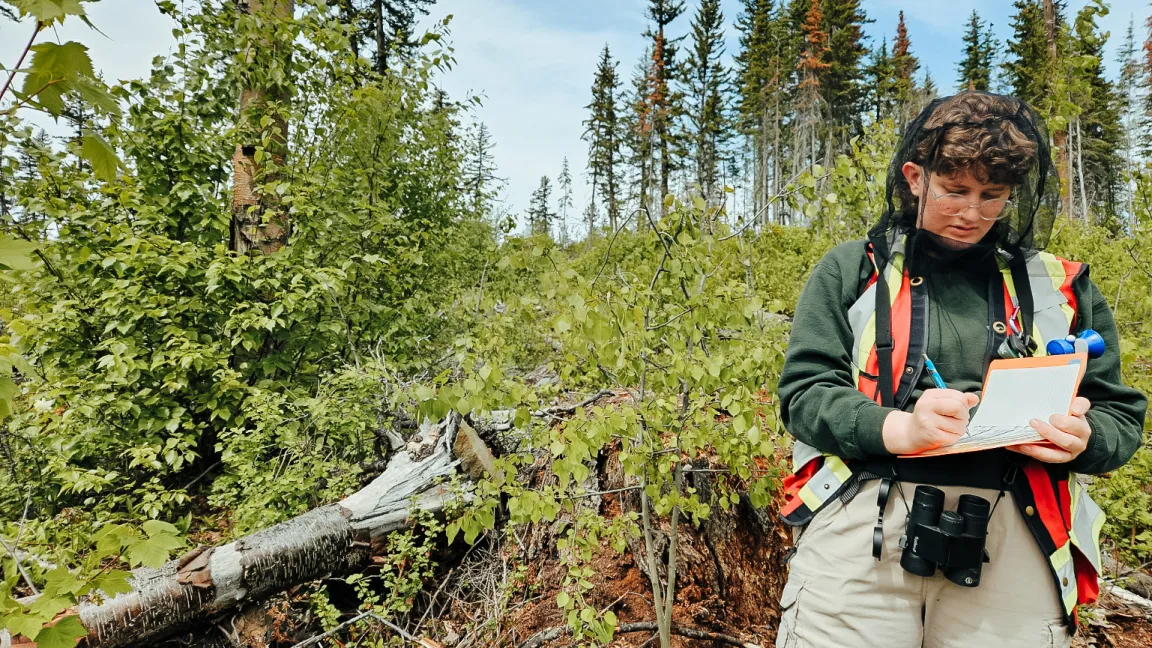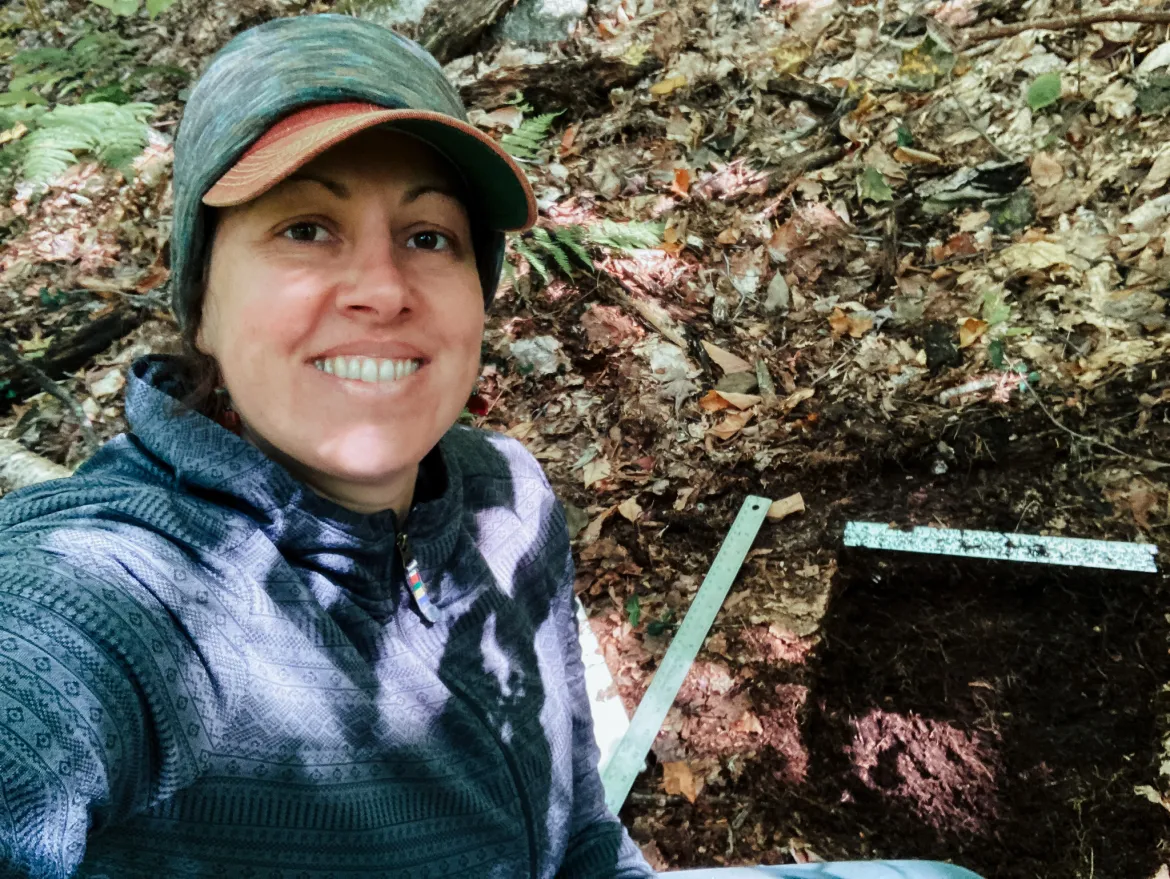UNBC researchers secure more than $1.5 million in NSERC Discovery Grant funding
Eight UNBC researchers receive more than $1.5 million through NSERC’s Discovery Grant program to support long-term, curiosity-driven research. Their work explores topics ranging from wildfire resilience and cybersecurity to freshwater ecosystems and advanced mathematics

Prince George, B.C. – From advancing road sustainability and cybersecurity to exploring wildfire impacts and uncovering deep mathematical insights, University of Northern British Columbia researchers are leading foundational research supported by the Natural Sciences and Engineering Research Council of Canada (NSERC).
“UNBC researchers draw on the strengths of northern British Columbia—its communities, ecosystems and practical challenges—to pursue research that has both regional and global relevance,” says UNBC President Dr. Geoff Payne. “This funding supports their efforts while creating opportunities for students to contribute to impactful work.”
Eight faculty members received a combined $1,562,500 through the 2025 NSERC Discovery Grant program, which includes Discovery Launch Supplements for six early-career researchers. The funding supports long-term research projects and provides experiential learning opportunities for undergraduate, graduate and post-doctoral researchers.
“The Discovery Grant program fosters the type of curiosity-driven research that lays the groundwork for major breakthroughs,” says UNBC Vice-President Research and Innovation Dr. Paula Wood-Adams. “It enables our faculty to pursue bold ideas while mentoring the next generation of scholars.”
Biology Professor Dr. Eduardo Martins received $195,000 to study how freshwater fish respond to climate-driven temperature changes. His work investigates whether cool-water refuges can help fish recover from thermal stress. “Our research will bridge the gap between laboratory experiments and real-world scenarios,” says Martins. “This approach will help managers better anticipate the effects of warming temperatures and protect fish populations threatened by climate change.”
Ecosystem Science and Management Assistant Professor Dr. Diogo Spinola is exploring how wildfires affect carbon storage in temperate and boreal forest soils. His project will examine both immediate and long-term impacts on the carbon cycle to support more accurate climate modelling and land-use decision-making.
Funding: $187,500
Engineering Associate Professor Dr. Mohab El-Hakim received $202,500 to establish a pavement engineering research group at UNBC. His work focuses on innovative asphalt mixtures, optimized winter road maintenance and predictive modelling of pavement deterioration. “The group is studying the progression of pavement distresses and developing deterioration models to determine the optimum maintenance techniques and treatment application times,” says El-Hakim. “Our goal is to create resilient pavement systems tailored to northern climates and heavy industrial traffic, while saving taxpayers money.”

Geography Senior Research Scientist Dr. Raquel DeCastro Portes (pictured right) is examining how wildfires increase soil erosion and carbon loss, with consequences for forest recovery, water quality and salmon habitats. Her research uses advanced soil-tracing techniques and includes collaboration with the BC Ministry of Forests and Cheslatta Carrier Nation. “By understanding how wildfires affect soil erosion and carbon loss, we can better support forest management, protect salmon-bearing waters and help northern B.C. communities build resilience,” she says.
Funding: $187,500
Mathematics Assistant Professor Dr. Chunyi Gai is using mathematical modelling to study how patterns—such as plant clusters or tissue structures—form and persist in natural systems. His research, supported by national and international academic collaborations, has applications in ecology, health and environmental science.
Funding: $187,500
Ecosystem Science and Management Professor Dr. Ken Otter is investigating how birds adapt to anthropogenic disturbances such as logging and urban development. Using RFID-tagged nest boxes and automated audio monitoring, his team is studying how species like the mountain chickadee respond to changes in forest structure and microclimate.
Funding: $195,000
Computer Science Assistant Professor Dr. Sajal Saha is developing an AI-driven system to detect and respond to cyberattacks in real time, especially in future 6G networks. His work combines machine learning, traffic forecasting and explainable AI to improve security infrastructure.
Funding: $222,500
Mathematics and Statistics Associate Professor Dr. Alia Hamieh is exploring the value distribution and asymptotic behaviour of automorphic L-functions. Her research contributes to longstanding questions in number theory, with implications for understanding prime number distribution, modular forms and the analytic properties of L-functions. “This research program will enrich our grasp of the analytic aspects of L-functions while advancing this beautiful area of mathematics,” says Hamieh.
Funding: $185,000
NSERC’s Discovery Grant program is one of Canada’s most significant investments in fundamental science. By supporting long-term, investigator-led research, the program fosters academic excellence and knowledge generation across disciplines.
“These projects reflect the strength, diversity and ambition of UNBC’s research community,” says Research Project Officer Jacqueline Dockray. “They demonstrate how northern perspectives continue to contribute meaningfully to national and international discovery.”